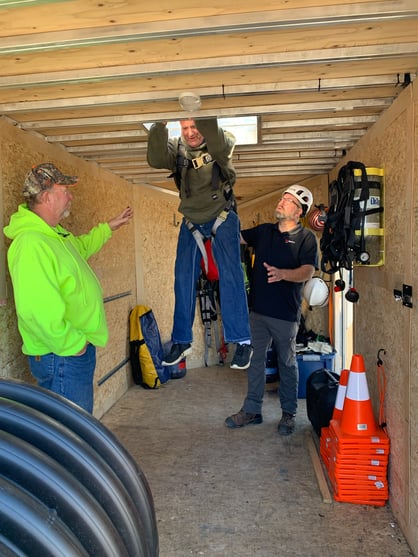Confined spaces can be hazardous environments that pose risks to workers who enter them. These spaces are typically small, enclosed areas with limited access points, and they can pose serious dangers to those who work in them, including suffocation, explosion, and entrapment. To minimize the risks associated with confined spaces, it is important to undergo hands-on confined space safety training.
Hands-on confined space safety training is an essential component of any confined space safety program. This type of training allows workers to practice the skills and techniques they need to safely enter and work in confined spaces. It provides a practical, hands-on experience that reinforces the knowledge and concepts learned in classroom training.
One of the key benefits of hands-on confined space safety training is that it helps workers develop the confidence they need to work in confined spaces. By working through simulated confined space scenarios, workers learn how to identify potential hazards and respond appropriately. They also gain experience in using the equipment and techniques required to safely enter and work in confined spaces.

Another benefit of interactive confined space safety training is that it allows workers to practice emergency response procedures. In the event of an emergency in a confined space, workers need to be able to quickly and effectively respond to the situation. Hands-on training helps workers develop the skills and confidence they need to respond to emergencies in a timely and effective manner.
Skill-based interactive confined space safety training also helps workers understand the importance of teamwork and communication in confined space work. In many cases, multiple workers are involved in confined space work, and it is essential that they work together to ensure their safety. Hands-on training provides an opportunity for workers to practice effective communication and teamwork, so they are better prepared to work together in confined spaces.
Finally, hands-on confined space safety training helps to ensure that workers have the necessary skills and knowledge to work safely in confined spaces. By providing workers with hands-on experience and practical training, employers can be confident that their workers are fully prepared to work in confined spaces.
In conclusion, hands-on confined space safety training is an essential component of any confined space safety program. By providing workers with hands-on experience, practical training, and the opportunity to practice emergency response procedures, this type of training helps workers to stay safe while working in confined spaces. You can see more of Riskill's interactive training courses in our course catalog.